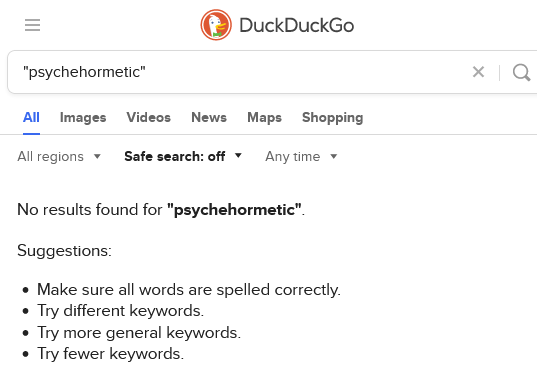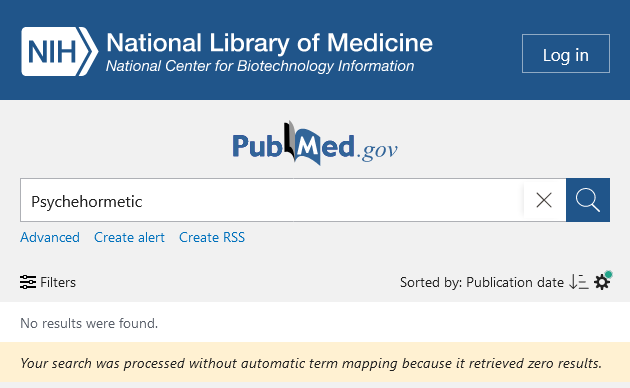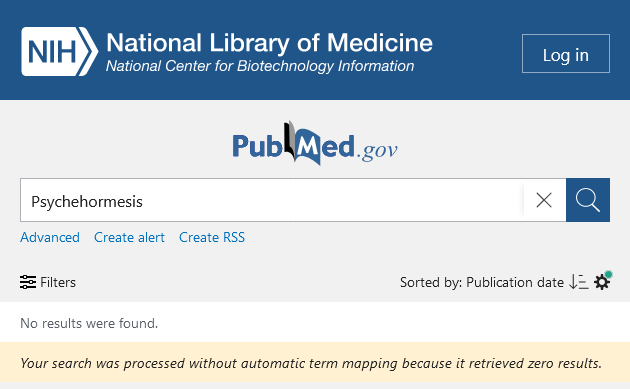MEDICAL TERMINOLOGY 7) Psychehormetic, versus 8) Psychohormetic
Hormesis (noun) and Hormetic (adjective) can be easily understood as a beneficial adaptive response to a stressor, two common examples of which are exercise and alcohol/ethanol
“For new ideas, we commonly need new words.” DrV
Background:
This entry continues the theme of MEDICAL TERMINOLOGY:
I should probably include the distinction of efficacy vs effectiveness within this theme of MEDICAL TERMINOLOGY especially as this was a very popular post, and most people including most doctors don’t know the difference even though these terms are weaponized against both the general population and medical professionals alike.
I coined the phrase Psychehormetic in my recent 31Aug2022 post “Our lives need more BEAUTY (2) and less drama” in the section that follows below wherein I mentioned N’s book Birth of Tragedy and how I found it to be mind-expanding “brain candy”, which leaves the mind stronger and more agile after the exercise, in a manner exactly analogous to the effect of physical exercise.
Apparently I am the first person to use this term as internet searches including PubMed find no mention of it:
Defining HORMESIS, HORMETIC
Hormesis (noun) and Hormetic (adjective) can be easily understood as a beneficial adaptive response to a stressor, two common examples of which are exercise and alcohol/ethanol:
MODERATE EXERCISE: When you exercise moderately, you experience hormesis as your body recovers from the exercise and actually “supercompensates” in a way to make your body stronger for the next exposure; exercise is the hormetic trigger, and supercompensation is the hormetic response. Obviously, too much exercise would exceed physiologic adaptive capacity and result in injury and exhaustion.
MODERATE ALCOHOL: When a person drinks a small-modest amount of alcohol/ethanol such as red wine, the biochemical stress of the alcohol/ethanol causes biochemical supercompensation such as increased antioxidant defense which leave the body in slightly better condition. Alcohol is the hormetic trigger, and supercompensation is the hormetic response. Obviously, too much alcohol/ethanol would exceed physiologic adaptive capacity and result in biochemical and cellular injury.
Interestingly, Nietzsche encapsulated the essence of hormesis in his famous saying/aphorism:
“That which does not kill us, makes us stronger.”
N actually wrote the phrase as “What doesn’t kill me makes me stronger” which was obviously N’s way of being optimistic about his own series of brutal and debilitating illnesses (not the least of which were dysentery, severe myopia, migraine, probably syphilis). He was obviously correct in two important ways: 1) His illnesses helped shape his philosophy into one of the most brilliant and all-encompassing philosophies in the entire history of humanity, and 2) I expect that the neuroinflammation that he experienced from his illnesses actually promoted neuroplasticity (and eventually hypomania) which also advanced his philosophy to “new heights” as he would say.
Defining PSYCHEHORMESIS, PSYCHEHORMETIC
I combined psyche (mind) with hormesis/hormetic to coin psychehormetic (as originally used below) and psychehormesis, which I’ll formally define as:
psychehormesis: The process of mental-intellectual beneficial adaptation following a mental-intellectual stressor, such as engaged exposure to difficult coursework or a challenging book.
psychehormetic: Adjective describing a mental-intellectual stressor such as a course or book which promotes an adaptive response in the brain that results in subsequent greater mental-intellectual acuity and ability.
I’ve discussed this concept previously as “brain candy” encouraging people to engage with certain works in order to grown from the experience, even if the experience itself is less than perfectly pleasurable:
15May2022 Health Homework 3.1: “If you want to have a sharp mind and useful insight at the moment of need, then you must train your brain ahead of time.”
15May2022 Health Homework 3.2: “Here, I’ll share with you a few of my favorite resources (books and audiobooks) and also several videos (here) that I have watched or re-watched within the past 48 hours.”
22May2022, Health Homework 3.3: “Let’s use these four presentations provided below as exercises to push our brains to stretch and grow even more so that we can create more capacity for new ideas that will come in the future.”
Defining PSYCHOHORMETIC and differentiating it from PSYCHEHORMETIC
Psycho-hormesis/hormetic (differentiated from psyche/mind) connects hormesis with psycho (noun) which implies “1) A psychopath, 2) A person who is psychotic or otherwise insane. 3) A person who acts in a bizarre or dangerous manner” per American Heritage Dictionary. Thus:
psychohormesis: The process of psychosis-strengthening adaptation following a mental-social stressor, such as corrective confrontation by colleagues or law enforcement from which the psychopath emerges more entrenched in and committed to their psychopathic behavior; because the correction/confrontation did not stop them, the pyschopath now has new confidence, insight, and arrogance because they have “proven” that they are immune to or stronger than the corrective force.
psychohormetic: Adjective describing a mental-social stressor such as corrective confrontation which promotes an adaptive response in the mind of the psychopath that results in subsequent greater mental-intellectual acuity and ability.
Psychohormesis—the worsening of psychopathic behavior following exoneration—is exactly what we observe when politicians are grilled, criticized, and then cleared of wrong-doing; they emerge more psychopathic, more ruthless because they have “proven” to themselves and everyone else that they were “right” and that they are above accountability and therefore super-human, as I observed in my post “Leadership Knowledge Protects Society.”
3. Beauty is necessary for an advanced society
The most enthusiastic endorsement of the importance of beauty is probably Nietzsche’s Birth of Tragedy, which was his first book (written at the age of ~27) and was clearly an indicator of his prodigious brilliance, his grammatical eloquence, his indifference to conformity, and his encyclopedic mastery of history, mythology, and philosophy. Such a book could be expected to produce 1) indifference among people not familiar with Nietzsche’s level of nuanced conversational fluency and 2) jealousy-incredulity among professional philosophers who had never beheld such a work.
Personally, I find the work to be brain candy (see previous discussions on brain candy3 4 5) due to the flood and flow of vocabulary and concepts, but I soon disconnect due to the overload, although I think that I leave better for the exercise, the psychehormetic6 benefit.









